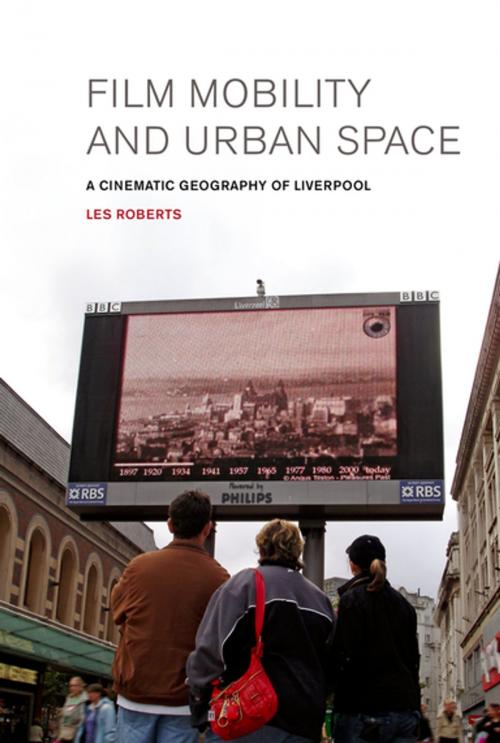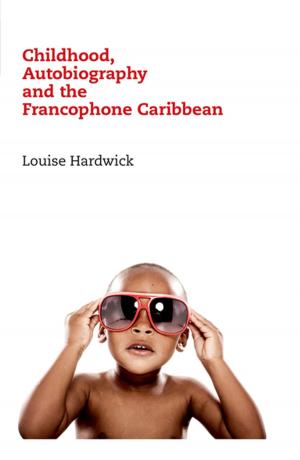Film, Mobility and Urban Space
A Cinematic Geography of Liverpool
Nonfiction, Art & Architecture, General Art, Art Technique| Author: | Les Roberts | ISBN: | 9781781389041 |
| Publisher: | Liverpool University Press | Publication: | February 21, 2012 |
| Imprint: | Liverpool University Press | Language: | English |
| Author: | Les Roberts |
| ISBN: | 9781781389041 |
| Publisher: | Liverpool University Press |
| Publication: | February 21, 2012 |
| Imprint: | Liverpool University Press |
| Language: | English |
Drawing on multi-disciplinary debates surrounding the cultural production of place, space and memory in the post-industrial city, Film, Mobility and Urban Space explores the role of moving images in representations and perceptions of everyday urban landscapes. The arguments put forward in the book are based on a case study of Liverpool in the north west of England and draw from a unique spatial database of over 1700 archive films of the city from 1897 to the present day. Theoretically wide-ranging in scope, Les Roberts's study combines critical spatial analysis, archival research and qualitative methods to navigate a city's cinematic geographies as mapped across a broad spectrum of film genres, including amateur film, travelogues, newsreels, promotional films, documentaries and features. As the second most filmed city in the UK - and formerly second city of Empire - Liverpool boasts a rich industrial, architectural and maritime heritage that has positioned the city - which was European Capital of Culture in 2008 - at the forefront of current debates on regeneration, visuality and cultural memory. The tension between the city as spectacle and the city as archive, and the contradictions that underpin the growing 'cinematization' of postmodern urban space are at the core of the arguments developed throughout the book. Examining the contention that, as spatial practices, the production and consumption of urban cinematic geographies are, in their different ways, tied to shifting cultures and geographies of mobility, Film, Mobility and Urban Space maps the critical interplay between material and immaterial spaces of the city and re-evaluates the significance - and 'place' - of location in contemporary film practice and urban cultural theory.
Drawing on multi-disciplinary debates surrounding the cultural production of place, space and memory in the post-industrial city, Film, Mobility and Urban Space explores the role of moving images in representations and perceptions of everyday urban landscapes. The arguments put forward in the book are based on a case study of Liverpool in the north west of England and draw from a unique spatial database of over 1700 archive films of the city from 1897 to the present day. Theoretically wide-ranging in scope, Les Roberts's study combines critical spatial analysis, archival research and qualitative methods to navigate a city's cinematic geographies as mapped across a broad spectrum of film genres, including amateur film, travelogues, newsreels, promotional films, documentaries and features. As the second most filmed city in the UK - and formerly second city of Empire - Liverpool boasts a rich industrial, architectural and maritime heritage that has positioned the city - which was European Capital of Culture in 2008 - at the forefront of current debates on regeneration, visuality and cultural memory. The tension between the city as spectacle and the city as archive, and the contradictions that underpin the growing 'cinematization' of postmodern urban space are at the core of the arguments developed throughout the book. Examining the contention that, as spatial practices, the production and consumption of urban cinematic geographies are, in their different ways, tied to shifting cultures and geographies of mobility, Film, Mobility and Urban Space maps the critical interplay between material and immaterial spaces of the city and re-evaluates the significance - and 'place' - of location in contemporary film practice and urban cultural theory.















